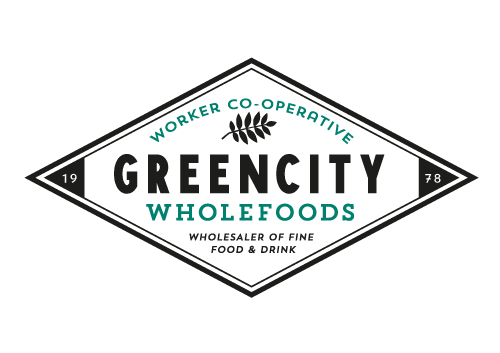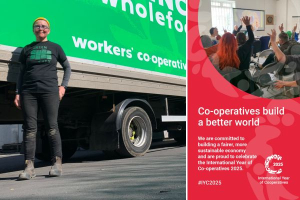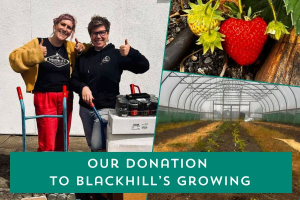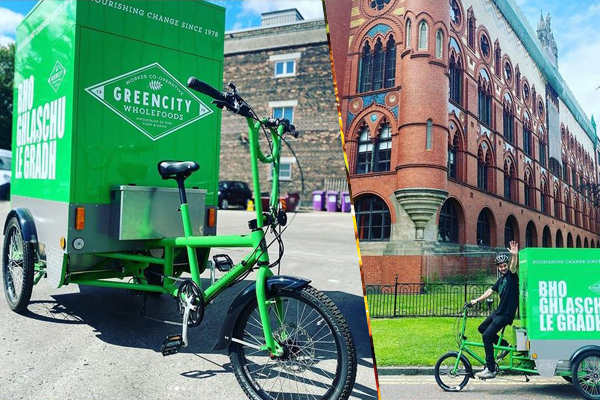
At Greencity Wholefoods, Scotland’s largest worker co-op wholesaler, we're now delivering food to cafes, restaurants and retailers in an electric powered trike. In an effort to reduce diesel pollution in Glasgow, we're trialling the trike this summer. The Iceni trikes are made in Wiltshire and can take loads up to 250kg.
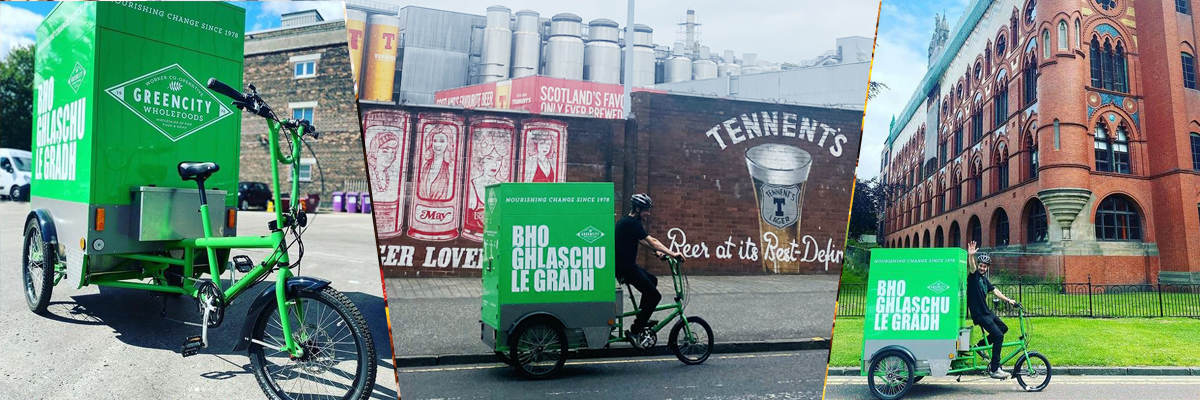
Our company is run by its workforce on an equal pay equal say basis, and reducing emissions and plastic use were the two main actions discussed at our most recent company general meeting.
Greencity Wholefoods was established in 1978, employs 56 people, and we've been addressing our carbon footprint in recent years. We've installed solar panels at our distribution base in Dennistoun, and are in the process of retrofitting all of our existing lighting to LEDs.
The e-cargo trike was funded through Glasgow City Council’s Co-Operative and Social Enterprise Fund.
Glasgow, the ‘Dear Green place’, has the highest levels of PM2.5s in the country, with a concentration of 16 micrograms per cubic metre. The main cause of these are particulates from diesel engines. The World Health Organisation’s recommended limit value for particulate matter smaller than 2.5 microns (PM 2.5) is 10 micrograms per cubic metre of air.
In 2016, along with the Royal College of Paediatrics and Child Health (RCPCH), the Royal Environmental Health Institute of Scotland estimated that ambient air pollution causes 40,000 premature deaths, over 6 million sick dates and an estimated social cost of £22.6 billion per year.
Glasgow introduced Low Emission Zones in 2018 with Phase 2 due to be introduced in 2023, so looking at alternative distribution models for inner city deliveries is essential.
Chris Wallace, who had the idea to trial the e-cargo trike, used to be a cycle courier, so knew about the capability of electrically assisted trikes. He says:
"It’s great Greencity has supported the idea, and if we can make a success of delivering goods in e-cargo trikes in Glasgow, we would then look to expanding delivery options in other cities across Scotland and Northern England. Communities deserve clean air and this is one method that could help mitigate pollution. We need to see more businesses adapt to create a more resilient society."
Long term member Scott Erwin added:
"With Glasgow hosting COP26 in November, it is incumbent upon businesses to find ways to reduce their CO2 emissions and help build a cleaner infrastructure for distribution. This shows one possible alternative mode of transport that could be utilised, but we require greater investment and options on the market for electric vehicles with larger payloads to really make a difference."
Look out for our cargo bike on the streets of Glasgow (and maybe beyond!) in the coming weeks.

